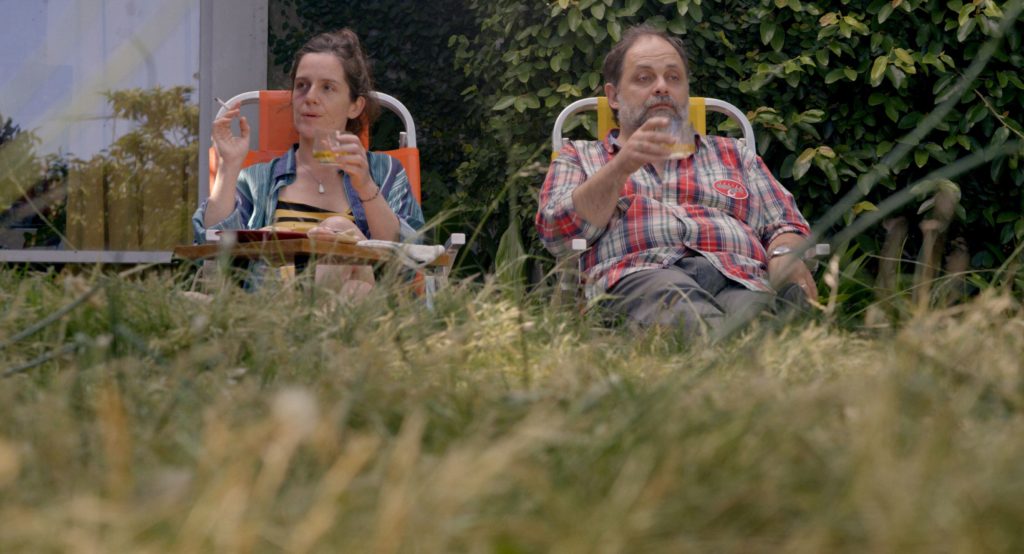Alelí is the name of the beach house, epicentre of the siblings’ worries, symbolic core of the narrative itself. We see the house for the first time halfway through the movie, in a shot from below that allows us to enter into the most authentic intimacy of the characters. Within the pending decision to sell or not sell the house, we have the chance to get to know the personalities of the three siblings.

Ernesto (Néstor Guzzini), Lilián (Mirella Pascual) e Silvana (Romina Peluffo) have profoundly different personalities. Silvana is the black sheep of the family. Messy, lonely, constantly absent from a reality that does not belong to her. She is the pivot of this dysfunctional family throughout the film, she ends up being the compensating element between the relational imbalances. Ernesto, the only son between two female figures completely different from one another, is the most similar to the father figure. He is devoted to materiality and tradition, and he opposes to the sale of the house. Ernesto and his father seem to merge in one single person, almost as if he could become his double, or if he wanted to. The director often shows him in front of the mirror, reflected by a resemblance that in a few but eloquent moments seems to almost double him physically and give life to an absent body. Finally, there is Lilián who is in constant confrontation with his brother, she is more lucid, detached, sometimes more cynical than the other two. The tireless conflict between Ernesto and her creates many of the most amusing and extravagant moments of the film, an interweaving of events in a narrative arc that starts from an irreconcilable difference that ends in a genuine complicity.
Among all the family drama there is, as expected, Alelí. A house full of complicated relationships, of struggles to find a common ground, and of never-ending attempts to numb the fear of change and death. The movie suggests that the only possible solution to overcome the pain is, after all, to know how to laugh about it.
Giulia Leo
Francesca Massa

